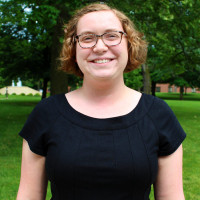What’s Important: Community & Interconnectedness
There are many factors that can influence your college decision. In our What’s Important series, we are unpacking seven common factors parents and students tell us are influential when they are choosing a university. This series will also provide resources for your college search based on the factors that are most important to you. Today’s factor is Community and Interconnectedness.
When community and interconnectedness are your top priorities, you want to find a university that has the right feel. Although academics, career prep, and financial aid are also important to you, ultimately you are looking for a place where you can belong, a place that will encourage you to grow alongside your peers and professors. People who value community and interconnectedness often come away from a campus visit saying something like, “When I stepped on campus, I just knew this was the place for me.”
Of course, you don’t have to rely on your feelings alone: A university with a strong sense of community and interconnectedness will have certain traits that you can observe for yourself in their marketing materials and on their website and campus grounds. Have they intentionally created spaces where students can gather to work or relax, either formally or casually? Are there counseling and academic services available to support students personally, spiritually, and academically? When you are walking on campus, are the people you meet friendly and engaging? Do they smile as you greet each other on the quad or in the dining commons? All of these observable qualities contribute to the feeling of community that you want in a university.
What to look for on a college website
- Students or employees talking about their experiences in their own words (blog posts, podcast episodes, social media posts, alumni profiles, etc.)
- Academic services (sometimes called the learning center or something similar)
- Counseling services (personal, spiritual, or career guidance)
- Student life (especially student traditions, as these often build community)
- Residence life (especially how residence halls are organized)
Example questions to ask your admissions counselor
- How accessible are professors outside of class? Are professors involved in campus life?
- How does the university support students’ mental health and well-being?
- Where do students tend to spend their free time?
- What activities are there to do on campus or in the area? Are there opportunities for community service or volunteering?
- How do the students and the university work together to make sure off-campus students are a part of the community?
- How diverse is the student population?
What to look for on your college visit
On your campus tour, pay close attention to how the people around you interact with each other. If you can, stay overnight in a residence hall and sit in on a class. These experiences will give you the best chance to get a feel for the community atmosphere.
Pay specific attention to these things:
- How professors interact with students: Are they friendly? Do they seem comfortable with each other? Do professors welcome questions from and conversations with their students?
- How students interact with each other: Do students talk with and greet each other on their way to class? Do they participate in class discussions? Do they get together after class for fun and for studying?
- How people interact with you: Do you feel welcomed? Can you picture yourself interacting with the students and professors you meet long-term?
Links to HU resources related to community and interconnectedness
- The HU blog, which covers first-hand perspectives of our favorite HU traditions and aspects of student life
- This specific blog post about the “embraces interconnectedness” Spirit of a Forester trait
- The People You Meet in the Forest podcast, which gives you the chance to hear directly from Foresters about their experience in the HU community
- The Student Resources page of our website, which includes a summary of and links to the many support services we offer students
Forester Perspective
“The education professors are so amazing, they’re more than just professors — they’re friends. They care so much about us all. I wouldn’t have it any other way!!”
Paige (2024)

